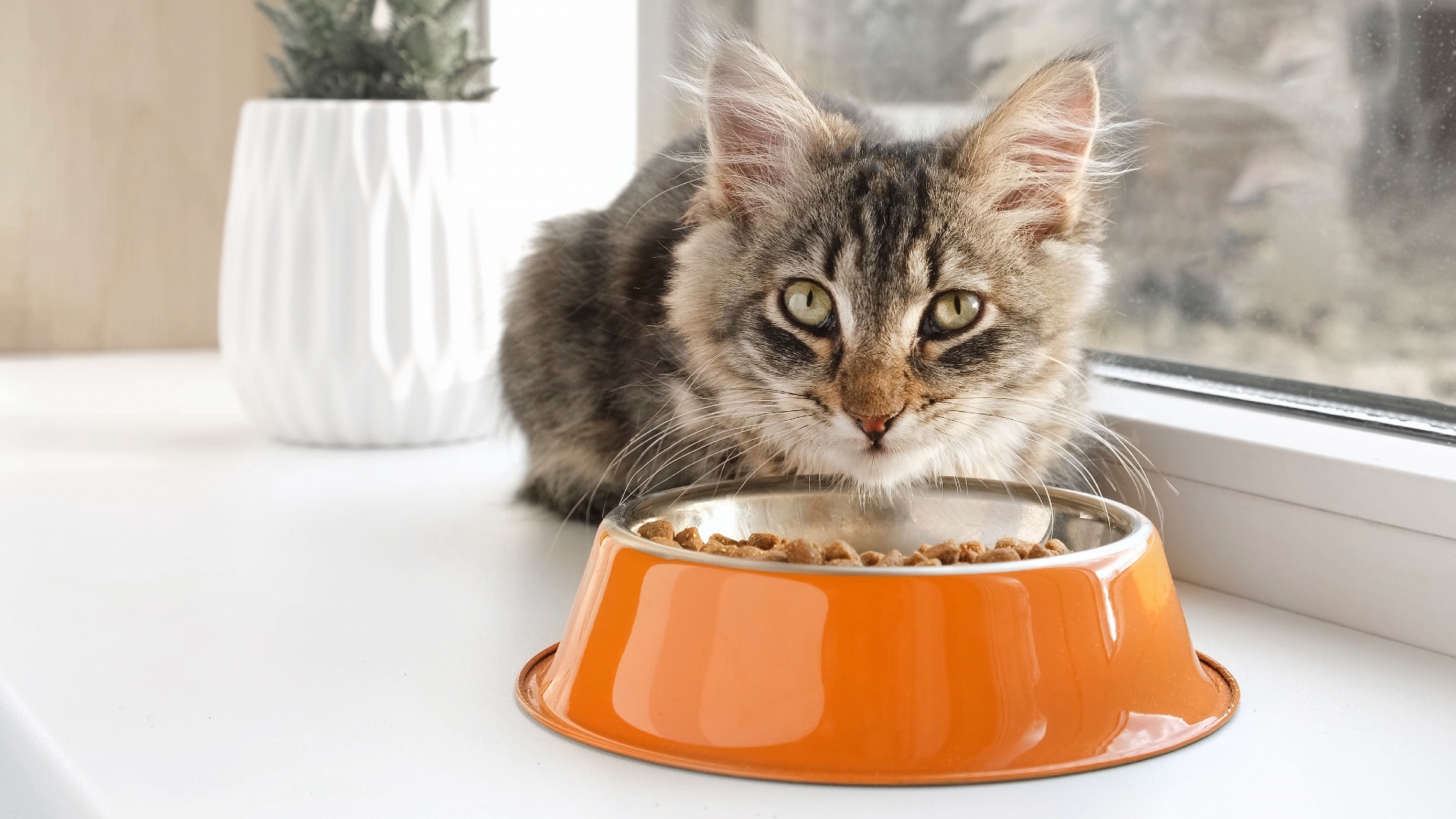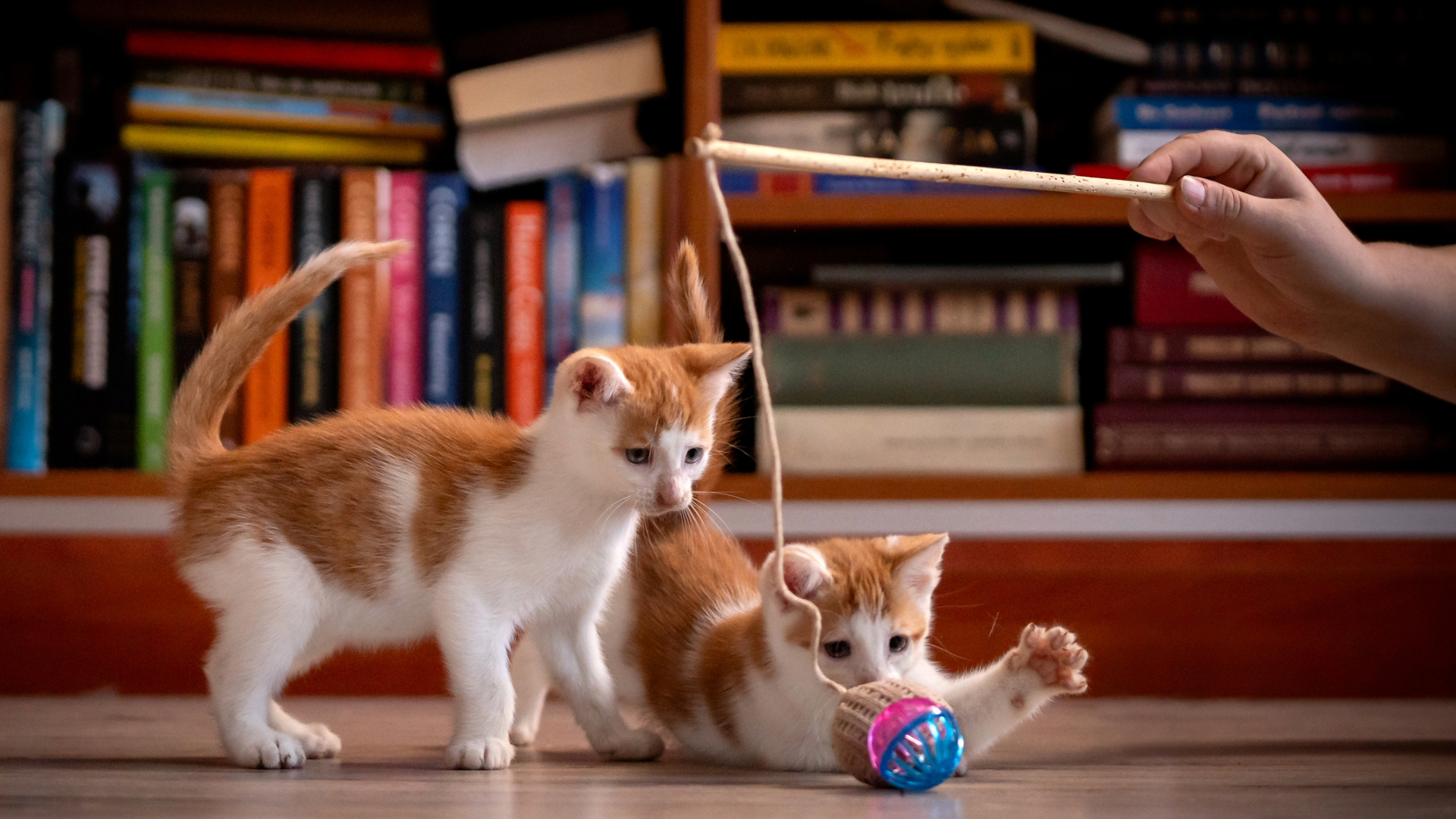Four reasons why you should stop free-feeding your cat, according to an expert
Expert reveals why free feeding your cat may put their health at risk

Free feeding vs. timed feeding is an ongoing debate amongst pet parents, with many preferring the flexibility and convenience of the former.
However, when it comes to feeding a cat properly, many vets advocate for timed feeding, which offers a range of physical and mental health benefits.
The question of how much should I feed my cat can vary significantly based on genetic factors, activity level and the calorie density of your cat's diet.
But when it comes to the best cat food, the feline experts over at Tuft + Paw are staunch supporters of not free feeding it to your kitty — and for good reason.
"Just like portion control is helpful for some humans in maintaining a balanced diet, feeding your kitty on a schedule with measured amounts keeps them healthy and happy," they explain in a video shared to TikTok which you can view below.
Read on to find out the top four reasons why you should give free feeding a miss, including how free feeding may put your cat's health at risk...
@tuftandpaw ♬ X World - Muspace Lofi
1. It limits your awareness of your cat's health: "Free feeding can make it challenging to monitor your cat's eating habits and accurately assess their health," explain the team at Tuft + Paw. "With food constantly available it becomes harder to identify if your cat is overeating." Plus, if you have a multi-cat household one cat not eating could easily get missed, which means you may not pick up on health concerns that require medical attention.
PetsRadar Newsletter
Get the best advice, tips and top tech for your beloved Pets
2. It contradicts natural eating patterns: "In the wild, cats are natural hunters and eat small meals throughout the day. By free feeding, we're disrupting their natural pattern, potentially affecting their metabolism and digestion."
3. Weight management challenges: "Without the ability to control portion sizes it becomes difficult to manage if your cat is overeating and this can affect their weight," the Tuft + Paw crew explain. "Obesity is a common problem with indoor cats, especially free feeding indoor cats." Check out our guide to 'is my cat overweight?' if you're concerned about your feline friend's waistline.
4. Lack of routine: "As we all know, our cats love their routines, and having a set time for breakfast and dinner is important for their mental health."
If you have any questions or concerns regarding your feline friend's diet, we recommend speaking with your vet who will be able to offer the appropriate advice and guidance.

Kathryn is a freelance writer who has been a member of the PetsRadar family since it launched in 2020. Highly experienced in her field, she's driven by a desire to provide pet parents with accurate, timely, and informative content that enables them to provide their fur friends with everything they need to thrive. Kathryn works closely with vets and trainers to ensure all articles offer the most up-to-date information across a range of pet-related fields, from insights into health and behavior issues to tips on products and training. When she’s not busy crafting the perfect sentence for her features, buying guides and news pieces, she can be found hanging out with her family (which includes one super sassy cat), drinking copious amounts of Jasmine tea and reading all the books.
